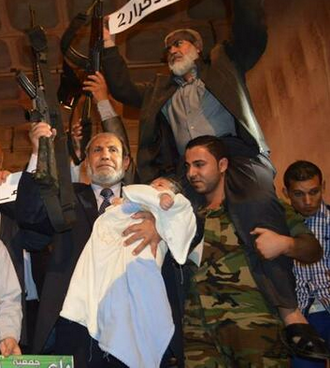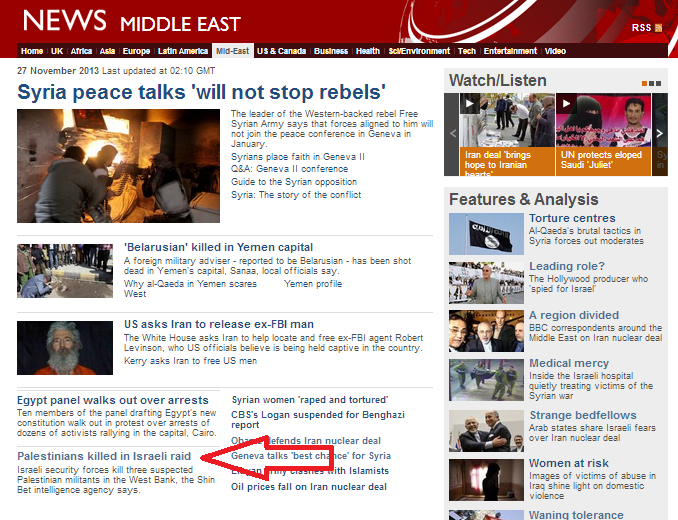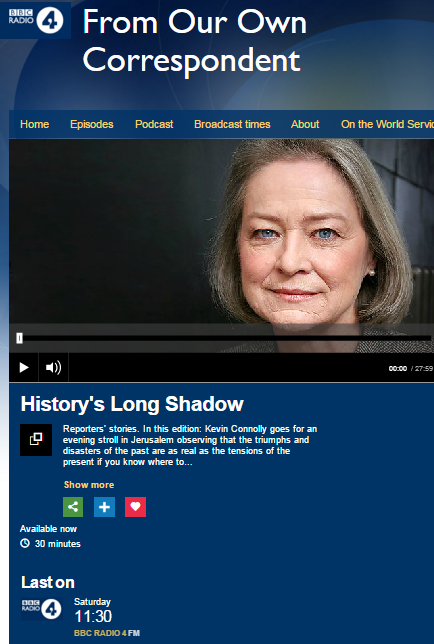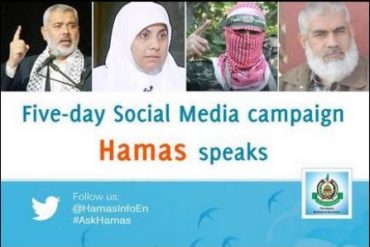BBC reporting on last month’s escalated barrage of missile attacks from the Gaza Strip against Israeli civilians in the south of the country included the repetition of versions of the following claim, which has also been made in previous BBC reports on other topics:
“Islamic Jihad and other groups have sporadically fired rockets and mortars at Israel since the 2012 conflict ended, while the Hamas movement that governs Gaza has refrained from doing so.” [emphasis added]
That claim was followed by another statement:
“However, an Israeli military statement said it held Hamas “responsible for all attacks emanating” from the coastal territory.”
As we remarked at the time:
“The BBC fails to inform audiences that the terms of the November 2012 ceasefire included the clause:
“All Palestinian factions shall stop all hostilities from the Gaza Strip against Israel including rocket attacks and all attacks along the border.”
Seeing as Hamas – as the BBC frequently reminds its audiences – governs the Gaza Strip, it is clear that prevention of missile fire and all other types of terror attacks fall under its responsibility.”
A recent interview with senior Hamas figure Mahmoud Al Zahar, published by ‘Al Monitor’ on the occasion of a visit to the Gaza Strip by Moussa Abu Marzouk, includes some insight into the terror organisation’s policies.

“Al-Monitor: So allow me to pose the question in a different way: Has Hamas truly abandoned armed resistance while other parties insist upon continuing it?
Zahar: Anyone who claims so must be drunk. How has Hamas abandoned the resistance effort? What are the manifestations of it doing so? Where have we prevented the launching of rockets? The last time three men were martyred as they fired rockets, did we stop them? This so-called ban came as a result of agreements between the factions after the last war. After every war, the factions agree about when to strike and when to stop. Some factions aim to cause tensions on the border crossings, which is not part of the resistance’s plan, but an attempt to bolster the siege by closing down the Kerem Shalom crossing. That is why they are arrested. And, in fact, some of them turn out to be spies or affiliated with factions that have nothing to do with the resistance movement. This is a clear case of psychological projection; those who fought against the resistance, criminalized it, imprisoned it, stripped it of its weapons and cooperated with Israel against it, now want to project their deeds onto Hamas.”
In other words, whilst Hamas may or may not have “refrained” from firing missiles itself, Zahar admits that it only prevents attacks by other factions if it sees that as being in its own interest and not because of the fact that the November 2012 ceasefire demands it. Further, he actually admits that the existence of a ceasefire agreement bringing a conflict to an end is followed by another internal agreement in which “the factions agree about when to strike and when to stop”. Notably too, Zahar’s comments indicate that attacks are deliberately perpetrated by some Palestinian factions in order to cause the closure of crossings, purely for reasons of publicity and political messaging. And clearly Zahar’s comments are ample evidence that if it was interested in enforcing the ceasefire agreement, Hamas is capable of doing so.
The easy ride given to Hamas by the BBC absolves it from all responsibility for enforcement of the ceasefire whilst misleading BBC audiences into believing that Hamas has somehow adopted a more moderate stance which includes having “refrained” from firing missiles at Israeli communities. As is evident from Zahar’s words, if indeed Hamas has – for reasons of its own – been less involved in carrying out such attacks itself, that is because there are plenty of other actors who will perpetrate them in its place and nothing whatsoever has changed in its overall stance.
It is high time the BBC provided its audiences with accurate and impartial information on this subject, including clarification of Hamas’ responsibility under the terms of the 2012 ceasefire to prevent all kinds of attacks from the Gaza Strip and an equally crucial understanding of the fact that it chooses not to do so.




